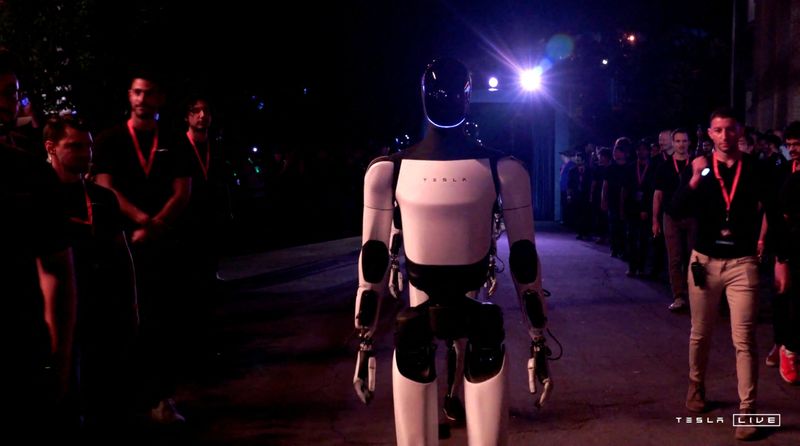Trump administration authorizes CIA for covert action in Venezuela - Bloomberg
Investing.com -- Morgan Stanley (NYSE:MS) estimates that a single humanoid robot costing $5 per hour could match the productivity of two human workers earning $25 per hour, creating an economic value of roughly $200,000 per unit over its working life.
The bank’s analysts see cost and safety as the key drivers of adoption for AI-enabled machines, echoing historical patterns with other transformative technologies.
In its latest note on Tesla (NASDAQ:TSLA), Morgan Stanley said the proliferation of humanoid and other robotic systems will follow the same rules that governed the adoption of the wheel, electricity, and the internet.
“We estimate 1 humanoid robot at $5/hour can do the work of 2 humans at $25/hour, generating a net present value (NPV) of approximately $200k/humanoid,” analysts led by Adam Jonas said in a note.
The analysts also highlighted potential cost efficiencies in transport, suggesting that a robot-shaped car could cut the cost per mile of a ride-share vehicle to less than $0.20 — about one-tenth that of a human-driven equivalent.
They added that an autonomous electric vertical take-off and landing (eVTOL) aircraft could generate the same revenue as 15 ride-share vehicles.
Morgan Stanley maintained its “Overweight” rating on Tesla, reiterating the company as a top pick.
The note framed the development of humanoids and embodied AI within a broader shift toward what it calls “Robonomics,” in which machines carry out increasingly complex and economically valuable tasks.
Over time, the marginal cost of a personal humanoid robot — likened to a “C-3PO” — could approach the cost of powering it, the analysts said.
Last month, Tesla signed a $16.5 billion agreement to source chips from Samsung Electronics (KS:005930), with production set for Samsung’s new plant in Taylor, Texas.
The next-generation AI6 chips are intended for self-driving vehicles and the Optimus humanoid robot, and could support wider AI uses. While the deal may aid Samsung’s struggling contract chip business, it is not expected to speed Tesla’s EV sales or robotaxi rollout.
